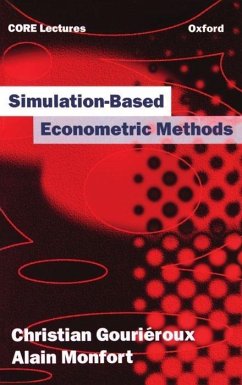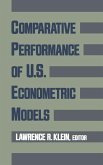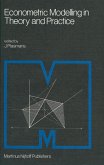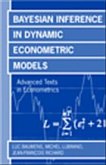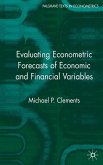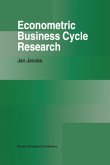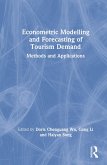This book introduces a new generation of statistical econometrics. After linear models leading to analytical expressions for estimators, and non-linear models using numerical optimization algorithms, the availability of high- speed computing has enabled econometricians to consider econometric models without simple analytical expressions. The previous difficulties presented by the presence of integrals of large dimensions in the probability density functions or in the moments can be circumvented by a simulation-based approach. After a brief survey of classical parametric and semi-parametric non-linear estimation methods and a description of problems in which criterion functions contain integrals, the authors present a general form of the model where it is possible to simulate the observations. They then move to calibration problems and the simulated analogue of the method of moments, before considering simulated versions of maximum likelihood, pseudo-maximum likelihood, or non-linear least squares. The general principle of indirect inference is presented and is then applied to limited dependent variable models and to financial series.
Simulation-Based Econometric Methods introduces a new generation of econometric methods in the classical domain. After linear models leading to analytical expressions for estimators and non-linear models using numerical optimization algorithms, the availability of high-speed computing has enabled econometricians to consider econometric models without simple analytical expressions. The previous difficulties presented, for instance, by the presence of integrals of large dimensions in the probability density functions or in the moments can be circumvented by a simulation-based approach.
Hinweis: Dieser Artikel kann nur an eine deutsche Lieferadresse ausgeliefert werden.
Simulation-Based Econometric Methods introduces a new generation of econometric methods in the classical domain. After linear models leading to analytical expressions for estimators and non-linear models using numerical optimization algorithms, the availability of high-speed computing has enabled econometricians to consider econometric models without simple analytical expressions. The previous difficulties presented, for instance, by the presence of integrals of large dimensions in the probability density functions or in the moments can be circumvented by a simulation-based approach.
Hinweis: Dieser Artikel kann nur an eine deutsche Lieferadresse ausgeliefert werden.

